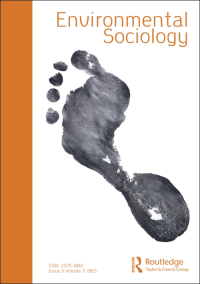Abstract
This paper contributes to new debates on urban agriculture as a sustainability tool, addressing allotment gardens and post-socialist allotment gardens in particular, as a form of urban gardening flagged as especially promising by recent research. Combining perspectives from research on post-socialist allotments and from global development debates over peri-urban gardening, we analyze the social conditions of allotment gardening in a case study from Hungary. We show that the expansion of allotment gardening happened as part of socialist second economy, a hidden austerity policy that served to compensate for shrinking living standards through informal self-help. We argue that this model was part of a global policy shift towards supporting informal self-help activities in the context of global neoliberalization. Yet, it contained forms of institutional support that made large-scale allotment gardening possible, a condition that vanished after the fall of socialism. Our case study shows that current forms of allotment gardening are severely limited through consequent structural constraints, like the dominance of informal housing function in allotments, rising input costs, and scarce labor time. We conclude that larger scale institutional support is essential to ease those limitations, and point at possible consequences for comparative research and policy intervention regarding allotments’ sustainability role.
Keywords: Urban gardening, allotments, informal housing, post-socialist, extended urbanization



